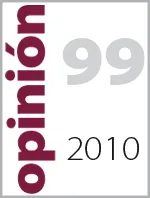Pakistan: A Tipping Point?

Emma Hooper,
Associate Researcher, CIDOB
12 January 2011 / Opinión CIDOB, n.º 99
Just as the assassination of Archduke Franz Ferdinand of Austria in Sarajevo in 1914 proved to be the seminal event that led to the unleashing of the Second World War in Europe, the recent assassination of the Governor of the Punjab province, the late Salman Taseer, could prove to be a tipping point in the fate of Pakistan as a country, its immediate neighbours, and due to its geopolitical strategic importance, to the rest of the world as well.
Apart from being a personal tragedy, it is also a tragedy for Pakistan, because it underlines the deep, widening rift in the country’s social fabric. If the balance between obscurantist beliefs and respect for fundamental human rights is not redressed, the country may disintegrate into anarchy. An example of this yawning chasm is the outpouring of popular support for the assassin - perhaps the most shocking aspect of the appalling event. As one observer (Irfan Husain, Dawn newspaper 8 Jan 2011) put it: “More than the assassination itself, the proud smirk on the killer`s face, and the vocal support he has been receiving from a significant section of the media, lawyers, (and) religious parties, shows us where Pakistan stands today. It is this hate-filled environment that has made rational discourse virtually impossible.”
In such an environment, no one questions the acceptability of the lack of reasoned debate, the taking of the law into one’s own hands. Murder has become the default response to anyone in disagreement with those vocally espousing a rigid, dogmatic and obscurantist way of thinking. Recent fervent demonstrations in Lahore and Karachi where tens of thousands took to the streets to defend the (anti) Blasphemy Laws (adopted in 1980, making it a capital offence to insult Islam or the Prophet Mohammed, but which are frequently misused for economic gain or as a vehicle for personal grudges – and for which Mr Taseer lost his life) underline the power of the “street” compared to that of the legitimately-elected government.
The assignation of a fanatical assassin to a VIP security team shows at best a serious lack of adequate vetting. The apparent penetration of the security apparatus by ideological Islamists is of considerable concern. The fact that his colleagues in the security detail appear to have agreed to take no action against him, even though they had foreknowledge of the assassination plan, is an illustration of this phenomenon.
In Pakistan, extremist ideas are promoted by many quarters, and are amplified by an irresponsible media in so-called “free” debate - (the downside of the relatively recent deregulation of control over the print and electronic media in Pakistan). Such debates are all too often full of inaccuracies, polemics, innuendo, inference and judgmentalism. In contrast, exposure to rational thinking – other than from intellectuals in the English language newspapers read only by an already relatively enlightened minority) – is conspicuous by its absence in the country, including in its educational systems. In consequence, a combination of brainwashing and lack of education (ie sheer ignorance) makes it hard for even those who do manage to access education, to develop independent thought, and even harder for the illiterate, or those attending religious schools which place importance on rote learning, not on independent analysis.
The voices of articulate, educated, largely elite liberals have become an endangered species, and may die out. The response of successive governments to the threat – now a reality – of Islamist militancy has been too weak, too unsure, or too self-interested to confront the religious rightwing. It is now the people of Pakistan and the country’s own national identity which are paying the price. The hydra-headed monster has been allowed to grow too strong through inaction. Inaction has also produced a hate-filled environment which now threatens anyone who believes in and speaks out about fundamental human values such as rights, diversity, secularism, justice, including the right to freedom of speech and the knowledge that the state has the capacity to protect them. The ability (and worse still, the will) of the ruling elite to resist the influence of the militant Islam of the street is increasingly in question. Despite the creeping influence of radicalism and sporadic attempts to contain it, the elites have – till now – viewed extremists as fringe elements in what is essentially a tolerant society. This tolerance has now been seriously called into question and whether through lack of conviction or fear of reprisals, it appears as if they have already conceded the space to those disallowing tolerance of any difference of opinion, and who wield the ultimate sanction of the threat of violent death to support their views.
Whilst as the late Mr. Taseer recently pointed out, religious parties have never done well in the elections in Pakistan; the manner of his death makes it clear that the radical elements in its society are now those setting the agenda. We are at a pivotal moment in which, if the trend continues, liberal voices will be silenced, and obscurantist, ill-educated Islamists determined to implement the shari’a at home and to export jihadism abroad, will flourish and prevail. Can the country’s secular elements and the ruling elites come together? Can they take a serious stand to defeat militancy and shape Pakistan’s future in line with that envisioned by its founder, Mohammed Ali Jinnah and enshrined in its Constitution – as a tolerant environment where rights and diverse beliefs are protected by the state and in which personal liberty and security are assured? If they cannot, the consequences not just for Pakistan, but for the region and the world, are likely to be disastrous. There is no alternative.